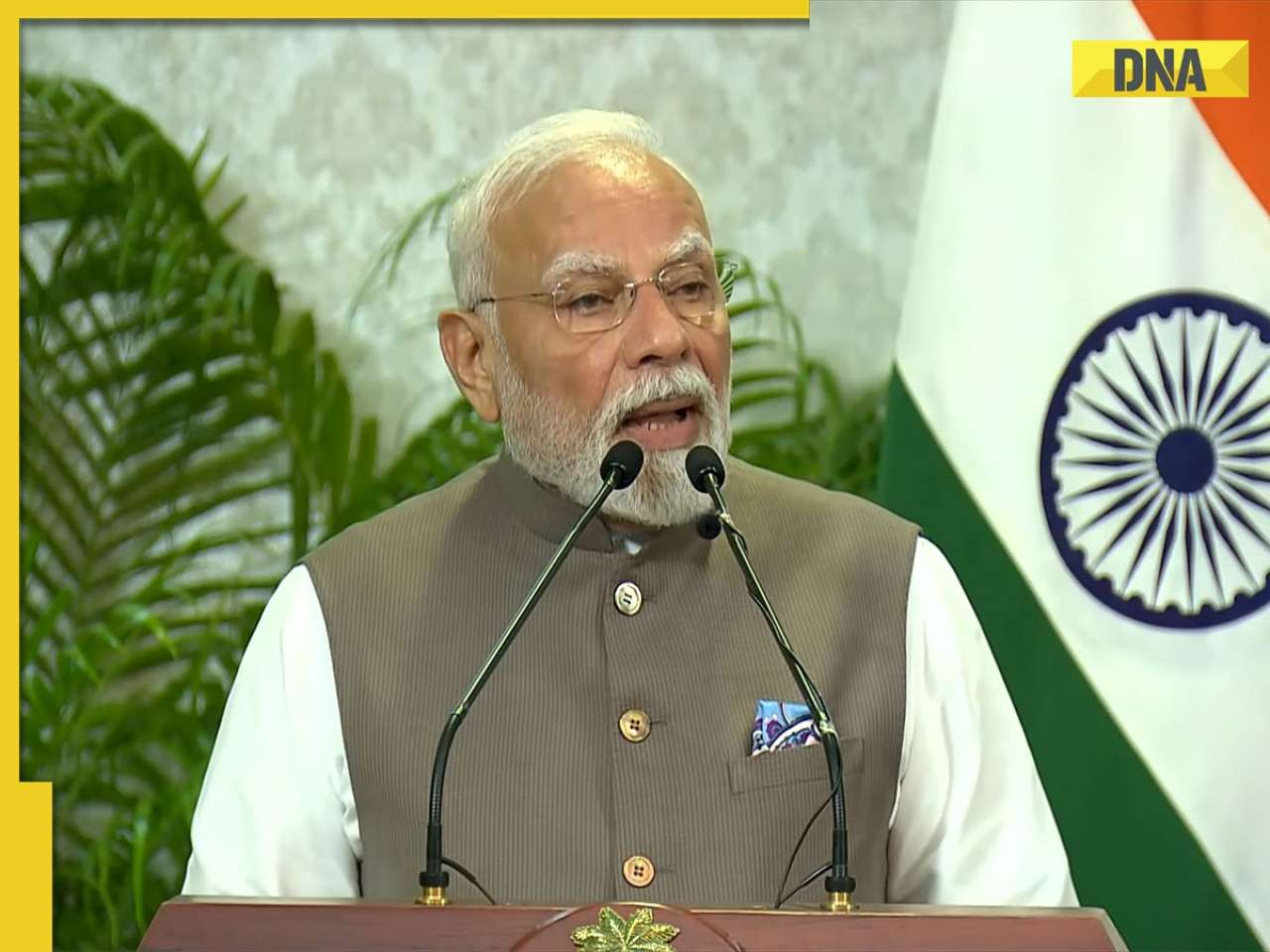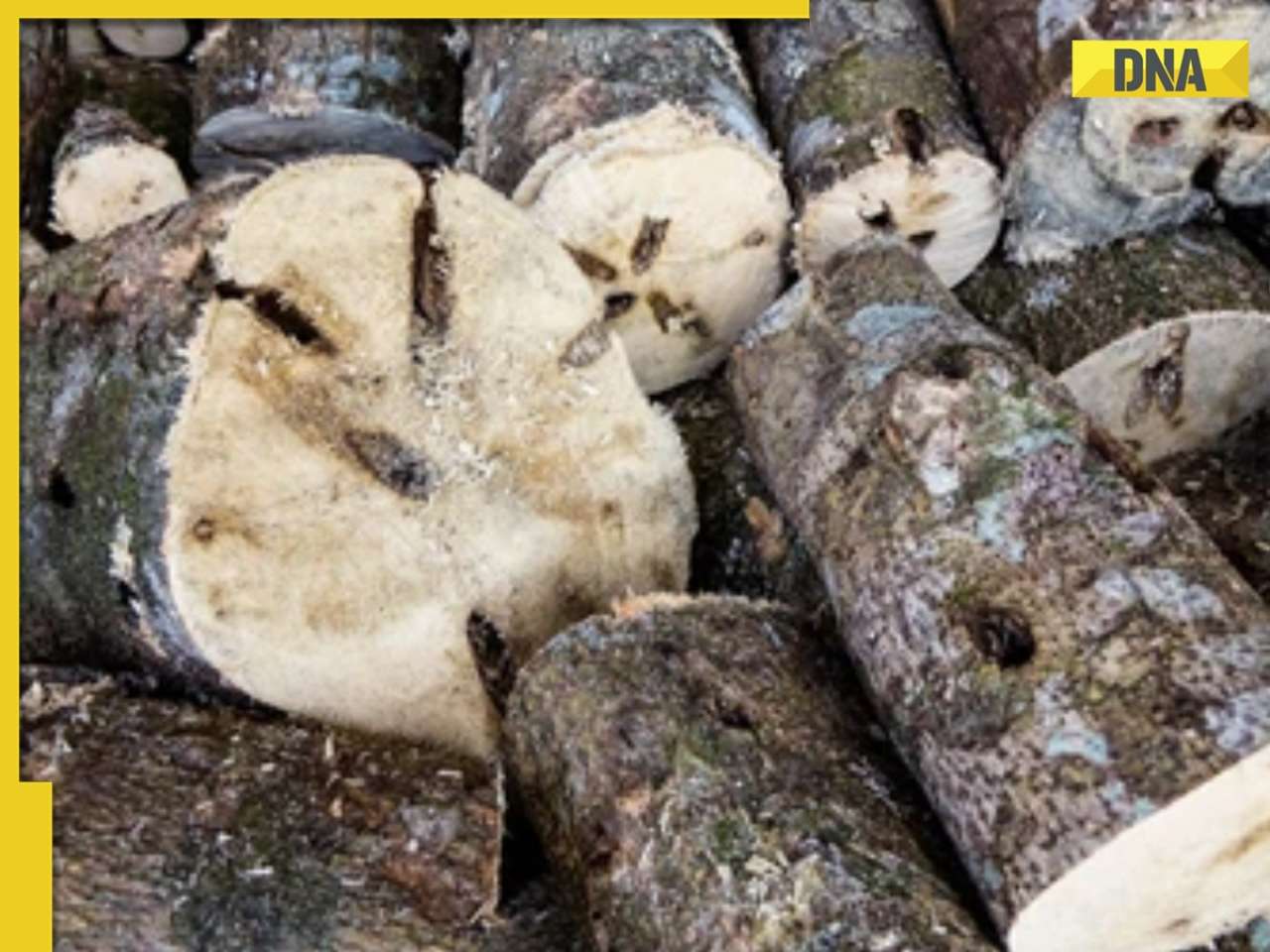Scientists have discovered 'dark' oxygen being produced at more than 13,000 feet below the ocean surface, challenging long-held assumptions about deep-sea ecosystems.
Scientists detect 'dark' oxygen production 13,000 feet below the ocean surface
In 2013, ocean scientist Andrew Sweetman observed a puzzling phenomenon while on a vessel in a remote part of the Pacific Ocean. His equipment showed that oxygen was being produced on the seabed, 4,000 meters below the surface, where no light can penetrate. Initially, Sweetman thought his sensors were faulty. He and his team encountered the same readings on three subsequent voyages to the Clarion-Clipperton Zone. Despite sending the sensors back for testing, they were always confirmed to be working correctly.
Photosynthetic organisms such as plants and plankton produce oxygen using sunlight, which then cycles into the ocean depths. Previously, it was believed that deep-sea organisms only consumed oxygen, not produced it. Sweetman's findings challenged this long-held assumption. His research, published in the journal Nature Geoscience, shows oxygen being produced without photosynthesis. This discovery underscores how much is still unknown about the ocean depths and highlights the potential impact of deep-sea mining on these ecosystems.
Sweetman first noticed the "dark" oxygen production while assessing marine biodiversity in an area designated for mining polymetallic nodules. These nodules, which contain metals like cobalt, nickel, copper, lithium, and manganese, form over millions of years and are in high demand for green technologies. Critics warn that deep-sea mining could damage the underwater environment and disrupt carbon storage in the ocean, exacerbating the climate crisis.
During the 2013 experiment, Sweetman used a deep-ocean lander to enclose a small area of the seafloor and measure oxygen levels. He expected to see oxygen levels fall as microscopic animals consumed it. Instead, he found oxygen being produced. In 2021, using a backup method, he confirmed the same result. Sweetman realized he had been overlooking a significant discovery for nearly a decade.
The team took samples back to the lab to understand how oxygen was being produced. They ruled out biological processes and focused on the polymetallic nodules themselves. Sweetman hypothesized that the nodules might act like batteries, generating an electric current that splits seawater into oxygen and hydrogen. Collaborating with electrochemist Franz Geiger, they measured voltages from the nodules and found readings of 0.95 volts, suggesting a natural "geobattery" might be at work.
This discovery challenges the traditional understanding of oxygen cycling in the deep sea. Daniel Jones, an ocean biogeosciences professor, called the finding "amazing and unexpected." The research team provided sufficient data to justify their observations, but alternative explanations could exist. The study suggests manganese nodules might have an unappreciated role in deep-sea ecosystems.
Find your daily dose of All
Latest News including
Sports News,
Entertainment News,
Lifestyle News, explainers & more. Stay updated, Stay informed-
Follow DNA on WhatsApp. IND vs ENG: R Ashwin declares management's 'batting depth' theory flawed, makes explosive case for Kuldeep Yadav
IND vs ENG: R Ashwin declares management's 'batting depth' theory flawed, makes explosive case for Kuldeep Yadav Sukesh Chandrashekhar promises 2BHK flats worth Rs 1 crore to Jacqueline Fernandez fans in a lucky draw for...
Sukesh Chandrashekhar promises 2BHK flats worth Rs 1 crore to Jacqueline Fernandez fans in a lucky draw for... Israel makes it mandatory for military officers to study Islam and learn Arabic due to...
Israel makes it mandatory for military officers to study Islam and learn Arabic due to... Neeraj Chopra vs Arshad Nadeem showdown in Poland Diamond League uncertain as Pakistani javelin star....
Neeraj Chopra vs Arshad Nadeem showdown in Poland Diamond League uncertain as Pakistani javelin star.... This company bags Rs 2000 crore contract from Defence Ministry for...; not HAL, Mazagon Dock
This company bags Rs 2000 crore contract from Defence Ministry for...; not HAL, Mazagon Dock Other than heart attacks or BP : 7 hidden heart conditions triggered by oily foods
Other than heart attacks or BP : 7 hidden heart conditions triggered by oily foods 7 most captivating space images captured by NASA you need to see
7 most captivating space images captured by NASA you need to see AI-remagined famous Bollywood father-son duos will leave you in splits
AI-remagined famous Bollywood father-son duos will leave you in splits 7 superfoods that boost hair growth naturally
7 superfoods that boost hair growth naturally Confused between Forex and Credit cards for your international trip? Learn which saves more
Confused between Forex and Credit cards for your international trip? Learn which saves more Tata Harrier EV Review | Most Advanced Electric SUV from Tata?
Tata Harrier EV Review | Most Advanced Electric SUV from Tata? Vida VX2 Plus Electric Scooter Review: Range, Power & Real-World Ride Tested!
Vida VX2 Plus Electric Scooter Review: Range, Power & Real-World Ride Tested! MG M9 Electric Review | Luxury EV with Jet-Style Rear Seats! Pros & Cons
MG M9 Electric Review | Luxury EV with Jet-Style Rear Seats! Pros & Cons Iphone Fold: Apple’s iPhone Fold Could Solve Samsung’s Biggest Foldable Problem | Samsung Z Fold 7
Iphone Fold: Apple’s iPhone Fold Could Solve Samsung’s Biggest Foldable Problem | Samsung Z Fold 7 Trump News: Congress Seeks Answers On Trump's Alleged Mediation In Operation Sindoor
Trump News: Congress Seeks Answers On Trump's Alleged Mediation In Operation Sindoor Jinnah wanted THIS Muslim man to be first Finance Minister of Pakistan, he refused, his son is on Forbes list of billionaires
Jinnah wanted THIS Muslim man to be first Finance Minister of Pakistan, he refused, his son is on Forbes list of billionaires After India-UK FTA, New Delhi to begin talks with THIS country, because...
After India-UK FTA, New Delhi to begin talks with THIS country, because... Indian billionaire Sunil Mittal earns Rs 13499163600 profit from this country, not India, UK; net worth reaches Rs...
Indian billionaire Sunil Mittal earns Rs 13499163600 profit from this country, not India, UK; net worth reaches Rs... UPI Alert! New UPI rules to come in effect from..., know how it will affect GPay, PhonePe, Paytm users
UPI Alert! New UPI rules to come in effect from..., know how it will affect GPay, PhonePe, Paytm users  RBI Governor Sanjay Malhotra makes BIG statement on free UPI transactions, says 'some cost...'
RBI Governor Sanjay Malhotra makes BIG statement on free UPI transactions, says 'some cost...' Ashish Chanchlani looks dashing as he drops latest photos from Italy, fans say 'Tom Cruise fail hai aapke saamne'
Ashish Chanchlani looks dashing as he drops latest photos from Italy, fans say 'Tom Cruise fail hai aapke saamne' Are these five vintage car museums in India a must-visit for every automobile lover?
Are these five vintage car museums in India a must-visit for every automobile lover? Riddhima Kapoor Sahni looks dreamy in pastel gold embroidered ensemble as she walks for Suneet Varma at IWC 2025; SEE PICS
Riddhima Kapoor Sahni looks dreamy in pastel gold embroidered ensemble as she walks for Suneet Varma at IWC 2025; SEE PICS Malaika Arora grabs attention with her street style moment, dons oversized denims, white tank top, luxurious mini bag worth Rs…
Malaika Arora grabs attention with her street style moment, dons oversized denims, white tank top, luxurious mini bag worth Rs… Raksha Bandhan 2025: Bollywood's sweetest 'muh-bole' sibling bonds that celebrate rakhi beyond blood
Raksha Bandhan 2025: Bollywood's sweetest 'muh-bole' sibling bonds that celebrate rakhi beyond blood This company bags Rs 2000 crore contract from Defence Ministry for...; not HAL, Mazagon Dock
This company bags Rs 2000 crore contract from Defence Ministry for...; not HAL, Mazagon Dock PM Modi's BIG message to Maldives, says, 'Whether it's a disaster or...'
PM Modi's BIG message to Maldives, says, 'Whether it's a disaster or...' Good news for first-time employees, set to get Rs…; check eligibility and other details
Good news for first-time employees, set to get Rs…; check eligibility and other details Air India sees another mid-air scare as Mumbai-bound flight returns to Jaipur minutes after takeoff due to...
Air India sees another mid-air scare as Mumbai-bound flight returns to Jaipur minutes after takeoff due to... Delhi-Meerut RRTS: Namo Bharat train timings changed for July 27 due to...; to start at...
Delhi-Meerut RRTS: Namo Bharat train timings changed for July 27 due to...; to start at... Meet Nilufa Yasmine, who topped UGC NET June exam, failed twice before scoring a perfect 100, she is from...
Meet Nilufa Yasmine, who topped UGC NET June exam, failed twice before scoring a perfect 100, she is from... Meet woman, daughter of vegetable vendor who cracked UPSC, her mother mortgaged gold for her education, her AIR is…
Meet woman, daughter of vegetable vendor who cracked UPSC, her mother mortgaged gold for her education, her AIR is… Meet woman, who cracked IIT with full-time job, secured impressive AIR of...; now works at Bill Gates' Microsoft as...
Meet woman, who cracked IIT with full-time job, secured impressive AIR of...; now works at Bill Gates' Microsoft as... Meet woman, couldn't speak English, once worked at Ratan Tata's TCS, cleared ISRO, BARC exams; later cracked UPSC with AIR..., she is...
Meet woman, couldn't speak English, once worked at Ratan Tata's TCS, cleared ISRO, BARC exams; later cracked UPSC with AIR..., she is... Meet woman, 'beauty with brain', who left medical studies, cracked UPSC exam not once but twice with AIR..., she is from...
Meet woman, 'beauty with brain', who left medical studies, cracked UPSC exam not once but twice with AIR..., she is from... Maruti Suzuki's e Vitara set to debut electric market at Rs..., with range of over 500 km, to launch on...
Maruti Suzuki's e Vitara set to debut electric market at Rs..., with range of over 500 km, to launch on... This is world’s most expensive wood, cost of 1kg wood is more than gold, its name is..., is found in...
This is world’s most expensive wood, cost of 1kg wood is more than gold, its name is..., is found in... This luxury car is first choice of Indians, even left BMW, Jaguar, Audi behind in sales, it is...
This luxury car is first choice of Indians, even left BMW, Jaguar, Audi behind in sales, it is... Kia India unveils Carens Clavis: Check features, design changes, price and more; bookings open on...
Kia India unveils Carens Clavis: Check features, design changes, price and more; bookings open on... Tesla CEO Elon Musk launches most affordable Cybertruck, but it costs Rs 830000 more than older version, it is worth Rs...
Tesla CEO Elon Musk launches most affordable Cybertruck, but it costs Rs 830000 more than older version, it is worth Rs...




)
)
)
)
)
)
)
)
)
)
)
)
)
)
)
)











